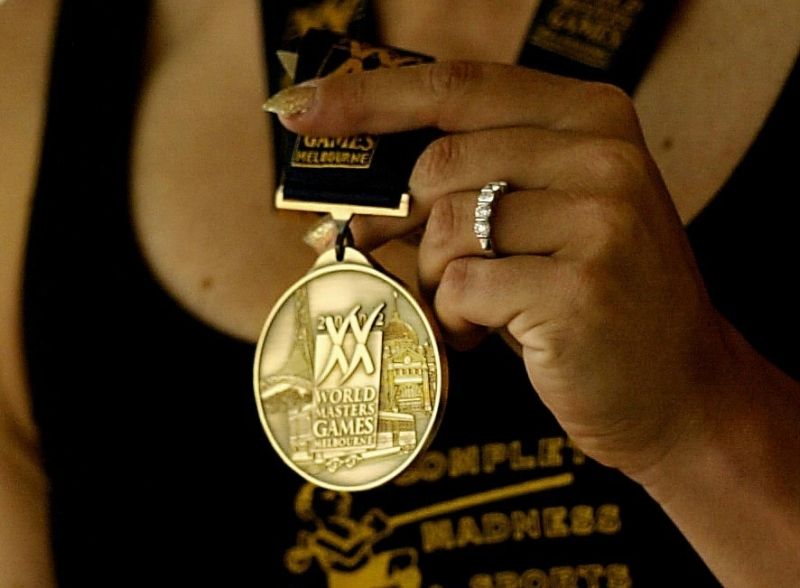Opinion
Mastering Hosting

Paul Dunphy explains how the 2017 World Masters Games will help pave the way for Auckland to become a key player in the event hosting market.
People Make Glasgow

As Glasgow comes to a crossroads with the end of its 2014 Commonwealth Games and begins its legacy journey, Rachael Church reviews the city’s hosting abilities.
Football 1 – FIFA 0
Sarah Walker, global neuroscience practice director at brand, media and communication agency Millward Brown, explains what a neuro-marketing research project tells us about attitudes towards the 2014 FIFA World Cup.
Taxing Times
Laura Phillips and Matthew Duncan from Kingsley Napley LLP are both part of the firm’s ‘Public Eye, Private Lives’ campaign that supports high-profile figures in the media. They explain the possible repercussions for sportspeople who get caught up in the furore around tax avoidance schemes.
World Cup: £900m Advertising Bonanza
Jonathan Barnard, head of forecasting at media agency ZenithOptimedia, looks at advertising spend and trends around this year’s FIFA World Cup.
Brand Engagment and the Tour de France
David Wood, managing director of brand communication at UK-based marketing agency Jaywing, looks at the opportunities to capitalise on the buzz of this year's Tour de France.
At the Mercy of Mother Nature
Owen Evans reports from the PWA (Professional Windsurfers' Association) World Cup at the Yelken Yacht Club in Awazain, Turkmenistan.
Is female passion for football underplayed?
The relationship between the English Premier League and women has been placed firmly in the spotlight with the furore around CEO Richard Scudamore's leaked e-mails. However, football fandom is far from male-dominated, as demonstrated by new sports fan research, commissioned by Advanced Ticketing, which reveals that UK female football fans are as passionate about The Beautiful Game as their male counterparts.
Bernie: The Succession Plan
How do you solve a problem like Bernie Ecclestone?
Extreme Sponsors
With the growing popularity of extreme sports once again illustrated at this month’s winter Olympics, lawyer Jon Walters looks at the loopholes and traps for sponsors associated with leading events and athletes in that space.
Women’s Sport: Act Now
Lynsey Holbrook, Sponsorship Director at integrated marketing agency Momentum UK, explains why the opportunities around women’s sports increase after every Olympic Games, and why brands need to move fast to capitalise.
Serie A jumps through more hoops
Italy has more laws on its statute books than any other European country but Italians are famous for considering them to be mere suggestions, polite recommendations, even paternalistic forms of advice, rather than binding rules...
Legal liability: Heat exhaustion at the Australian Open
As self-employed professionals, tennis players are not being coerced to play by an employer; they’re making the choice themselves to play in high heat conditions. Sports solicitor Andrew Crudge evaluates what impact this have on the organiser’s liability should any serious health issues arise.
One-on-One: Tim Shriver
On Monday the curtain fell down on the six-day, inaugural Special Olympics Asia-Pacific Games with a spectacular opening ceremony at the Hunter Stadium in Newcastle, Australia. SportBusiness International editor Matt Cutler spoke to Tim Shriver, Special Olympics chairman, about the challenges and opportunities around the organisation's continual drive to take people with intellectual disabilities, and the people who love and care for them, out of the shadows through the power of sport.
Sport’s best-kept secret: Turkmenistan
After decades of being hidden behind the Soviet curtain, Turkmenistan is preparing to go under the global spotlight. Kevin Roberts travelled to the country's capital, Ashgabat, to find out how they plan to use sport as a launch pad.
Spend it like Beckham: How French football could’ve avoided super tax
When it comes to groups of highly-paid professionals for which people have little sympathy, footballers are sure to be near the top of the list. Matt Wright believes French footballers could have avoided a super tax proposal if they were seen to be more socially responsible.
Q&A: New MLS franchise owner Flavio Augusto da Silva
Majority owner of new Major League Soccer (MLS) Orlando expansion franchise Orlando City Soccer Club, Brazilian entrepreneur Flavio Augusto da Silva, spoke exclusively to SportBusiness International this month about his plans for the team.
Breaking the Olympic cycle: The IOC’s bidding dilemma
As tonight’s bidding application deadline for hosting the 2022 winter Olympics approaches, The Sport Consultancy’s Robert Datnow asks whether the candidate cities – and the communication consultancies that steer their bid strategies – will find the rules of the game beginning to change?